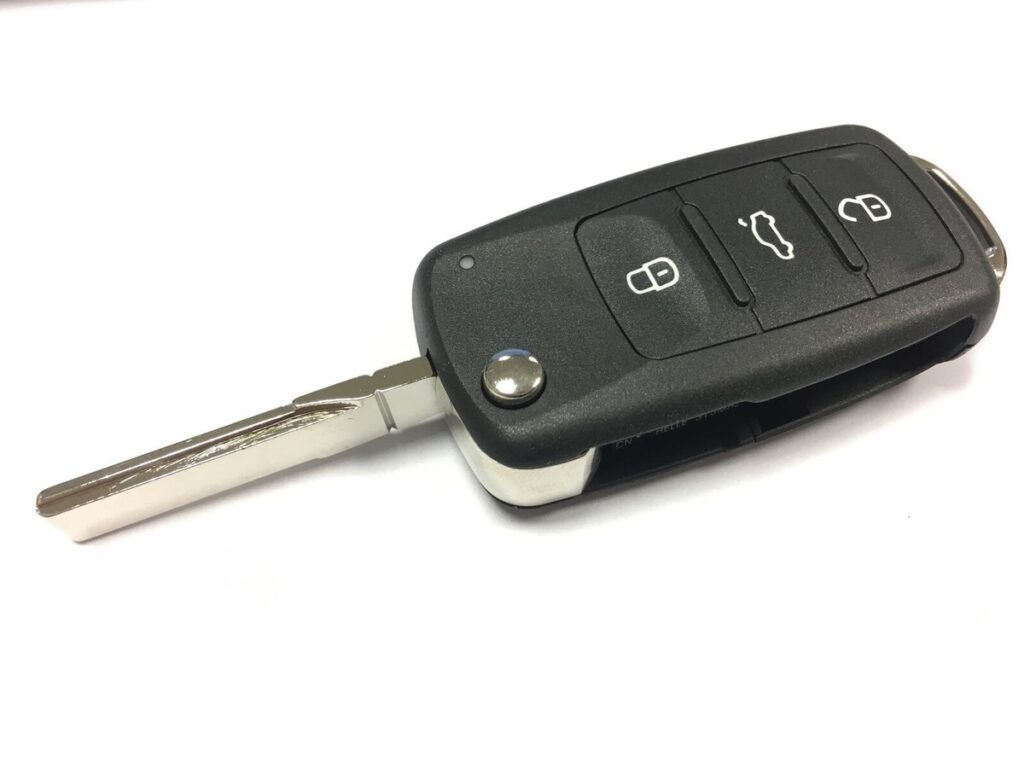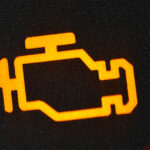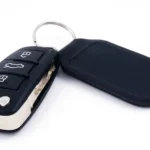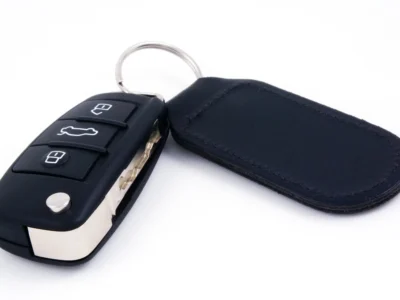
Volkswagen Polo Key Won’t Turn: Causes, Fixes, and Expert Tips

When your Volkswagen Polo key won’t turn, frustration kicks in instantly. You’re probably running late, gripping the key harder, jiggling it, or wondering if the steering wheel is locked. Don’t worry—we’ve all been there. In this comprehensive guide, we’ll walk you through why your Polo’s key won’t turn, the most common causes, and how to fix it like a pro, whether it’s a mechanical jam or an ignition barrel issue.
- 1. Introduction: When the Key Refuses to Turn
- 2. Common Reasons the Key Won’t Turn
- 3. Quick Pre-Check Before Panicking
- 4. The Steering Lock Dilemma
- 5. Worn or Damaged Key
- 6. Faulty Ignition Barrel
- 7. Ignition Switch Malfunctions
- 8. Dead Battery or Electrical Lock
- 9. Gear Selector Position (Automatic Models)
- 10. Dirt and Debris Inside the Lock
- 11. Key Fob Issues and Immobilizer Faults
- 12. DIY Fixes You Can Try Safely
- 13. When to Seek Professional Help
- 14. Preventive Maintenance for Long-Term Peace
- 15. Cost of Repair or Replacement
- 16. What You Should Never Do
- 17. Conclusion
- 18. FAQs
1. Introduction: When the Key Refuses to Turn
Few things feel as powerless as sitting in your Volkswagen Polo, key in hand, ready to go—only to find it won’t budge.
It’s not just a mechanical problem; it’s a psychological one. The ignition lock is your gateway to movement, and when it fails, everything halts. But here’s the good news: most ignition lock issues are minor and fixable once you know where to look.
2. Common Reasons the Key Won’t Turn
Before calling a tow truck or a mechanic, it’s important to know that ignition lock failure is rarely spontaneous. The issue usually falls into one of these categories:
- Steering wheel lock engaged
- Worn-out or bent key
- Ignition barrel jammed
- Electrical immobilizer fault
- Gear selector not in ‘Park’
- Battery voltage drop
- Foreign debris inside ignition
Each of these culprits has its own symptoms and solutions, which we’ll break down in plain, practical English.
3. Quick Pre-Check Before Panicking
Before diving deep, try this 30-second checklist:
- Ensure the car is in “P” (Park) – for automatics.
- Gently move the steering wheel side-to-side while turning the key.
- Inspect the key – Is it bent, cracked, or worn smooth?
- Wiggle the key slightly (without force).
- Check the battery – remote key or vehicle.
Sometimes, one of these simple checks frees the lock and gets you back on the road immediately.
4. The Steering Lock Dilemma
How It Happens
Volkswagen Polos have a built-in steering lock as a theft deterrent. If the steering wheel was turned after removing the key last time, it may jam the ignition cylinder.
How to Fix It
- Hold the steering wheel firmly to one side (the side with less tension).
- Insert the key and turn both key and wheel together gently.
- Avoid forcing it—excessive pressure can break the key blade or damage the cylinder.
💡 Tip: Always straighten the steering wheel before removing your key to prevent this lock from re-engaging next time.
5. Worn or Damaged Key
Keys wear down over time—especially if you’ve used the same one for years. The ridges that align with tumblers inside the ignition lose precision.
Symptoms
- Key turns intermittently
- Key sticks halfway in or out
- Key feels “loose” in the cylinder
Solutions
- Try your spare key – it’s often in better shape.
- If the spare works, get a new copy made from the original key code.
- Avoid using DIY key-cut kiosks—use a VW dealership or certified locksmith for accurate calibration.
6. Faulty Ignition Barrel
The ignition barrel (lock cylinder) is the mechanical heart of the system. When internal tumblers wear or jam, the key won’t engage.
You may be interested in reading Hyundai Tucson Common Problems: Complete Guide to the Most Frequent Issues
Hyundai Tucson Common Problems: Complete Guide to the Most Frequent IssuesCauses
- Excessive dirt, dust, or corrosion
- Misaligned pins
- Repeated forced insertions of the key
Fix
- Lubricate the cylinder using graphite powder or a silicone-based spray.
- Avoid WD-40—it attracts more dust and creates buildup.
- If lubrication fails, replacement is the next step.
7. Ignition Switch Malfunctions
Beyond the lock barrel lies the ignition switch, an electrical component that recognizes key position and communicates with the starter.
Symptoms
- Key turns but no lights on the dashboard
- Accessories don’t power up
- No click sound from the starter
Repair
Replacing the ignition switch in a VW Polo typically costs $150–$300, depending on the model year and labor rates.
If your key turns but the car doesn’t respond, the switch or wiring harness may be at fault.
8. Dead Battery or Electrical Lock
If your Polo’s battery is weak or dead, the electronic steering lock or immobilizer may prevent the key from turning altogether.
How to Diagnose
- Dash lights flicker or are dim.
- Remote central locking is unresponsive.
- Key feels “blocked” without mechanical resistance.
Fix
Jump-start the car or replace the battery. Once powered, the lock should disengage normally.
9. Gear Selector Position (Automatic Models)
In automatic Volkswagen Polos, the transmission must be in Park (P) before the key can turn or be removed.
If the car isn’t fully in Park, the interlock system freezes the ignition switch.
Solution
- Step on the brake firmly.
- Move the gear lever slightly toward “P.”
- Now attempt to turn the key.
If this works, your shift-lock solenoid might need adjustment or replacement.
10. Dirt and Debris Inside the Lock
Pocket lint, moisture, and small dust particles can build up inside the ignition. Over years, this gunk can jam the tumblers and restrict movement.
Cleaning Tip
- Use a can of compressed air to clear debris.
- Insert a small straw nozzle and blast short bursts.
- Follow with graphite lubricant for smooth rotation.
11. Key Fob Issues and Immobilizer Faults
Modern Polos include an electronic immobilizer that communicates with the key chip.
If the immobilizer can’t read your key’s code, the ignition may stay locked.
How to Fix
- Try your spare key to confirm it’s not a chip issue.
- If both fail, resync the key using VW’s programming sequence or visit a dealership.
- Keep the key fob away from water, magnets, or impact—they can damage the transponder chip.
12. DIY Fixes You Can Try Safely
Here’s a quick breakdown of things you can safely attempt at home:
| Problem | DIY Fix | Time | Tools Needed |
|---|---|---|---|
| Steering Lock | Wiggle wheel gently | 1 min | None |
| Worn Key | Use spare key | 1 min | None |
| Dirty Barrel | Graphite lube or air | 5 min | Air can, lube |
| Dead Battery | Jump-start | 10 min | Cables |
| Gear Selector Jam | Adjust to Park | 1 min | None |
Avoid taking apart the steering column or ignition housing unless you’re mechanically skilled—those parts connect directly to airbag wiring and security modules.
13. When to Seek Professional Help
If you’ve tried the simple steps and the key still won’t move, it’s time to call a qualified mechanic or automotive locksmith.
They can:
 Hyundai Tucson Common Problems: Complete Guide to the Most Frequent Issues
Hyundai Tucson Common Problems: Complete Guide to the Most Frequent Issues How to Reset the Check Engine Light on a Hyundai Tucson
How to Reset the Check Engine Light on a Hyundai Tucson- Diagnose ignition tumbler wear
- Reprogram or clone keys
- Replace the entire ignition set (key + barrel + switch)
- Check immobilizer codes using VW diagnostic tools (like VCDS)
⚙️ Pro Insight: Volkswagen ignition systems are precision-machined. Forcing a jammed lock can turn a $200 problem into a $1,000 one.
14. Preventive Maintenance for Long-Term Peace
Prevention always beats repair.
Keep your Polo’s key and lock system healthy with these habits:
- Keep keys clean and dry—avoid exposure to pocket debris.
- Lubricate the ignition every 6 months with graphite spray.
- Never use excessive force when turning the key.
- Have a spare key cut before the old one wears out.
- Park with steering straight before removing the key.
15. Cost of Repair or Replacement
Here’s a breakdown of average costs (as of 2025):
| Component | Estimated Cost (USD) |
|---|---|
| Key Replacement | $100–$250 |
| Ignition Barrel | $180–$400 |
| Ignition Switch | $150–$300 |
| Locksmith Callout | $80–$150 |
| VW Dealership Diagnostic | $100–$200 |
💰 Tip: Independent VW specialists often charge 30–40% less than dealerships for the same OEM-grade parts.
16. What You Should Never Do
Tempting as it may be, avoid these costly mistakes:
- Don’t force the key—it can snap inside the barrel.
- Don’t spray WD-40 or oil inside the ignition—it traps dust.
- Don’t hammer or pry the steering lock.
- Don’t ignore warning signs—a sticking key means the problem has begun.
17. Conclusion
When your Volkswagen Polo key won’t turn, it’s not the end of the world—it’s just your car’s way of asking for attention.
Most causes are simple, mechanical issues that can be resolved without major repair. Whether it’s a locked steering wheel, a worn key, or a battery-related immobilizer fault, taking the right steps can save you both time and money.
Treat your key and ignition like the handshake between you and your car—keep it clean, precise, and respectful, and it will return the favor every time you start your journey.
18. FAQs
1. Why does my Polo key get stuck halfway?
The tumblers inside your ignition may be worn or misaligned. Try graphite lubricant or your spare key to confirm.
2. Can a dead battery stop the key from turning?
Yes. A weak battery can lock the electronic steering column or immobilizer, making the key immovable.
3. How do I fix a jammed steering lock on my Polo?
Turn the wheel gently in both directions while turning the key—avoid force. Straighten the wheel before removing the key next time.
You may be interested in reading Hyundai Tucson Common Problems: Complete Guide to the Most Frequent Issues
Hyundai Tucson Common Problems: Complete Guide to the Most Frequent Issues How to Reset the Check Engine Light on a Hyundai Tucson
How to Reset the Check Engine Light on a Hyundai Tucson How to Replace the Hyundai Tucson Key Fob Battery (Step-by-Step 2025 Guide)
How to Replace the Hyundai Tucson Key Fob Battery (Step-by-Step 2025 Guide)4. How much does it cost to replace the ignition barrel?
Typically between $180–$400, depending on labor rates and parts availability.
5. Can I use WD-40 on the ignition?
No. WD-40 attracts dust and moisture. Always use a dry graphite lubricant for ignition locks.
If you want to know other articles similar to Volkswagen Polo Key Won’t Turn: Causes, Fixes, and Expert Tips you can visit the category Common Problems.
Leave a Reply






More content of your interest